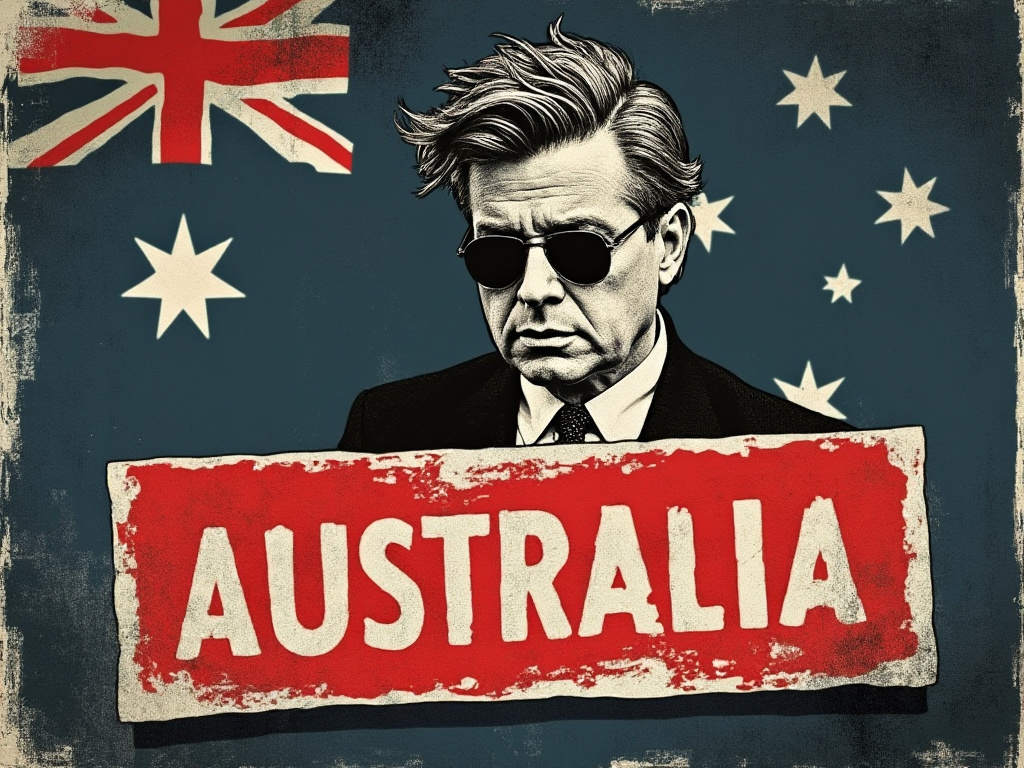By Minny Jackson
A new bill has just been introduced into the House of Representatives and it is a whopper. The Communications Legislation Amendment (Combatting Misinformation and Disinformation) Bill 2024, which was tabled on 12 September, makes it a civil offence to criticise banking institutions, amongst other things.
This bill, which is frankly a disgrace to the Australian public, should be firmly opposed, as it is a censorship bill designed to combat alternative media, and citizen voices raising the alarm on a number of controversial topics.
Topics such as the digital ID, the Covid pandemic measures and vaccines, plus the LGBT crisis emerging amongst the youth of today, are all ‘taboo’ subjects on social media. It is not a conspiracy that the ABC which dictates much of the mainstream news agenda, is funded by the government through direct grants.
The government therefore, is actively dictating much of the mainstream news cycle, and through additional legislation such as the above bill that was just tabled, they are shutting down free speech or alternative positions to a range of controversial topics. These are Orwellian methods, and what’s worse is that they’re achieving it with our own tax cash.
The 72 page bill is diabolical, covering censorship provisions from health measures, to ‘Australia’s economy.’
It seeks to not only regulate citizen speech, but effectively coerce digital media platforms into doing the government’s bidding in relation to collecting and retaining records of user data. It is very invasive.
In the bill, the ACMA (Australian Communications and Media Authority) is given ample powers to regulate digital platforms. Digital providers must report to the ACMA on matters regarding misinformation.
Daddy government is effectively making social media entities dob on its users over controversial matters the government doesn’t agree with.
The medium of material that can be reported is also insanely broad, encompassing much more than text, but music and ‘other sounds’, visual images animated or otherwise, and other forms of data. So memes and art can be targeted and regulated, if they’re not deemed to be ‘funny.’
Thanks daddy government.
Anything considered to be ‘disinformation’ can be regulated, and that definition is contained within section 15(2) and it is again, extremely broad. Meanings of ‘misinformation’ and ‘disinformation’ are first outlined in section 13 of the bill, and it includes content that is viewed to be ‘false’ or ‘misleading’ and likely to cause or contribute to harm.
Sound fair for the government to seek to regulate false material that may or may not contribute to actual real harm?
It is a proposition that is worse than many realise because the government itself cannot even tell what is true and false, and what is truly harmful and what is not. We saw it as they faffed about with the pandemic, and as they continue to faff about with a number of issues, including indicating the Digital ID system is ‘likely to make Australia safer.’
Whistle-blower reports have indicated MyGov is hacked regularly and hackers use ID information stored by the government to breach bank accounts and other systems Australian citizens use.
Digital ID will hardly make Australia safer – it may actually cause increased cyberattacks. The government therefore, is not in fact correct when it spurts so-called authoritative commentary on every issue. The government was also incorrect as it promoted the safety of the Covid vaccinations during the pandemic. If what they were saying during the pandemic was true, then why are people now suffering with myocarditis, and why are states in America currently suing Pfizer, claiming they likely contributed to miscarriages and other ailments?
If the government is correct on LGBT people being ‘born that way’ and are passing legislation to affirm LGBT children the instant they insist they are trans, then why are puberty blockers being banned in the UK?
Government is not always up-to-date with the facts. And not everything they say is accurate or ‘the truth.’ Therefore to let these people dictate what is true or not true is laughably insane. The ACMA have just over 500 staff. They are not who the public voted for in the last election, in case that wasn’t obvious.
The government had their time during the pandemic, to prove their discernment on a number of issues was correct – and it wasn’t. So why let them dictate what is true or not, going forward? Why indicate that 525 unelected staff members are able to determine through a social media search, which citizens they’ve never met online, are causing real tangible harm to Australia?
Section 13(3) also indicates that when the minister decides on what material will cause harm, they can consider the author of the material, the reach of the dissemination, the circumstances of the posting and ‘any other relevant matter.’
Well that’s a bit broad. What’s ‘relevant’ to the minister may be whatever they decide it to be, based on a whim. There are no real restrictions to the ambit of power being conferred on the regulating body when they decide what material ‘causes harm.’ And what is this nebulous ‘harm term’ according to the bill? Section 14 indicates it can be anything that affects the integrity of the country, or anything that affects ‘public health’ including the ‘efficacy of public health measures.’ It can be anything online that denigrates the banking system…
Section (f) indicates you can supposedly cause ‘harm to the economy’ with what you post on social media, even if it’s a piece of music or a picture! Who exactly gets to decide which meme ‘harmed the economy today?’
It is absurd drafting and logic. And the methodology is plain nuts.
Satire is supposedly exempted, but only if it is ‘reasonably’ regarded to be satire. The reason this exemption is a nonsense is because what is ‘funny’ to one person is often not that funny or satirical to the person in which the satire was aimed at. If the ACMA and government is the ‘alt media police’ it is likely they won’t find a good deal of content on social media, to be satirical.
Also any content that is ‘posted’ as defined in the definitions section of the bill, to be content that reaches one or more persons. Effectively, content delivered to just one person then, may come under the umbrella of misinformation that is ‘posted’ on a digital service provider. Part 2 of the bill sets out more powers the ACMA will have, and section 11(e) and (f) in conjunction with each other, provides them with powers to regulate systemic issues within digital service providers. In other words, they can dictate social media algorithms.
They can suggest which content is shadow-banned, which content is promoted, and which content can be deleted entirely. These are broad powers the ACMA are being given. Further to this, they can force digital providers to keep and retain records relating to misinformation and they may obtain information and documents from these providers (section 33). What do they need this information retained for? It looks like the government is bent on surveilling and collecting evidence about its citizens, but for who knows what purposes…
The bill therefore, as much as it is a vessel for censorship, is a tentacular surveillance tool. Additionally, the amount of regulations beginning to emerge for free speech enablers is not only extremely taxing on existing platforms, but off-putting to prospective or emerging platforms.
If passed, the new laws will do nothing other than promote more censorship of users, shut down important debate, while simultaneously promulgating the government’s own mainstream takes on issues which may be contradictory to the views of actual citizens. And they’ll achieve all this through your own hard-earned income tax.
What a blatant insult to the public they claim to represent.






